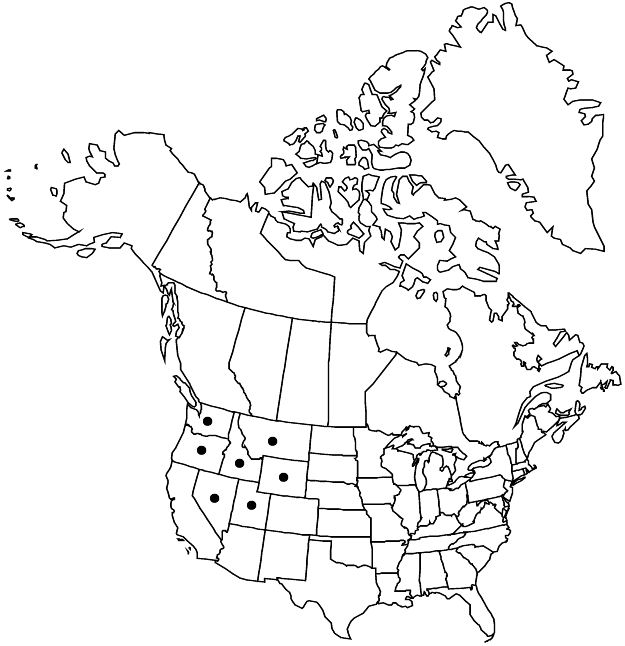Drymocallis glabrata
Monogr. N. Amer. Potentilleae, 201, plate 109. 1898.
Caudex branches short. Stems ± tufted, (2–)2.5–6(–8) dm; base 2–3 mm diam., moderately to densely septate-glandular. Leaves glabrate or sparsely hairy (hairier at northern margin of range); basal (8–)20–30 cm, leaflet pairs 2–4; terminal leaflet ± obovate, 2–6(–7) × (1–)1.5–3 cm, teeth ± double, 5–25 per side, apex obtuse to acute; cauline 0–2, well developed, leaflet pairs 1–3. Inflorescences (5–)10–30(–60)-flowered, leafy, open, 1/6–2/3 of stem, wide, branch angles (20–)30–60°. Pedicels 5–40 (proximal to 45) mm, sparsely to moderately short-hairy, predominantly septate-glandular. Flowers opening widely; epicalyx bractlets linear-oblanceolate, 2–6 × 0.5–1 mm; sepals spreading, 4–7(–8) mm, apex usually acute, rarely obtuse; petals ± overlapping, spreading, usually bright, sometimes pale, yellow, broadly obovate to round, 5–12 × (4–)5–11 mm, usually longer, rarely shorter, than sepals; filaments 1.5–4 mm, anthers 0.7–1 mm; styles thickened, 1 mm. Achenes brown to reddish, 1.2 mm.
Phenology: Flowering May–Aug.
Habitat: Montane meadows, open forests
Elevation: 400–2800 m
Distribution

Idaho, Mont., Nev., Oreg., Utah, Wash., Wyo.
Discussion
Drymocallis glabrata is the common member of the genus in central Idaho and adjacent parts of neighboring states, characterized by acute, glabrate leaves, leafy, widely branched inflorescences, relatively long pedicels with slender, septate glands, linear-oblanceolate epicalyx bractlets, and relatively large, bright yellow petals. Plants from northern Idaho, at the lower elevational extreme, tend to be hairier than those elsewhere in the species range. The species enters Utah in Cache and Weber counties; most other Utah populations placed by S. L. Welsh et al. (1993) in this taxon (as Potentilla glandulosa var. intermedia) are treated here as D. deseretica.
Selected References
None.